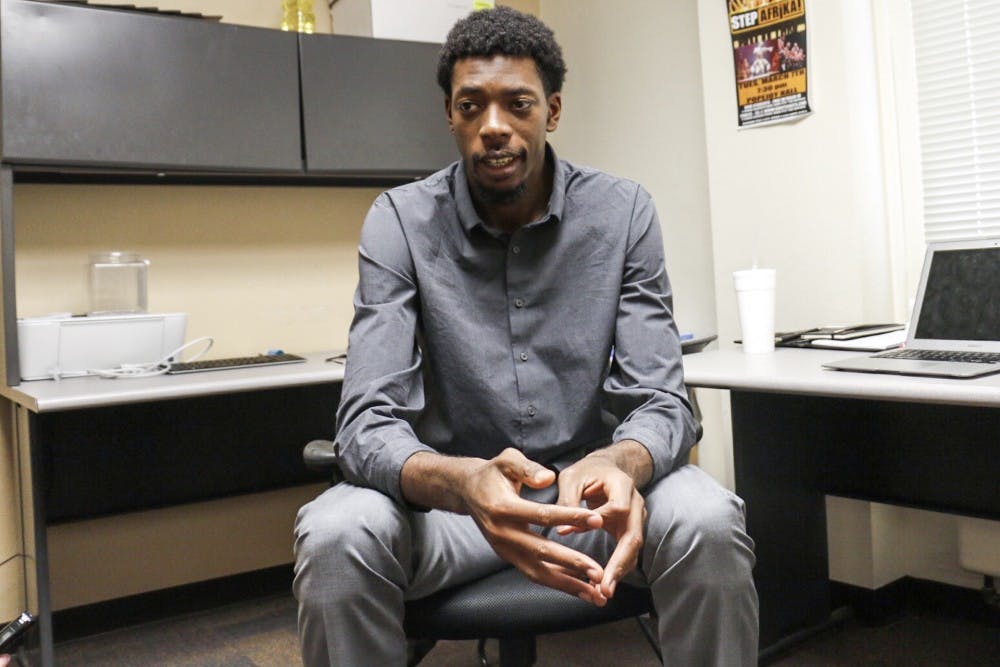A UNM mentorship program for Black student athletes is being revamped for the fall semester.
ZEAL, which stands for Zest for Excellence in Athletics and Learning, is a mentorship program based in African American Student Services. ZEAL pairs student athletes with mentors from the community and teaches skills like interviewing for jobs, communicating with professors and time management.
Although it started in 2007, ZEAL began to dwindle in the last several years, according to Devon Williams, the program’s lead coordinator.
But for the last six months, Williams has been working with African American Student Services director William Scott Carreathers, along with previous mentors in the program, to rebuild it.
“The majority of the individuals who went through the program in the past, they were able to graduate and they usually had really concrete degrees. So once they were done playing sports they were able to really dive into what they want to do and their interests,” Williams said.
The program pairs former athletes, who have their doctorates or are well into their career, with student athletes who seem at risk — meaning undergraduate students who have issues with their family and may be having difficulty adjusting to Albuquerque.
“A lot of these athletes come from low-income or poverty stricken communities, or they come from schools that don’t have necessarily the best resources to succeed in higher education or in college,” Williams said. “This program teaches these athletes how to navigate through college, to help them figure out what they’re interested in, help mold them into qualified young men and women so whenever they graduate and get into their career they know exactly what to expect.”
The program focuses on getting students the degree they want, not just one that will help them graduate in four years.
Because of athlete’s schedules, it can be challenging to get into certain degree fields or pursue their interests, Williams said. Although academics does a good job of serving the students and helping them, sometimes athletes do what’s easiest and not what’s beneficial in the long run.
“Our job is also to help them get out of their comfort zone and try not to look at the programs that are just easy, but are something they want to do for the rest of their lives,” he said.
The program also connects students with the University’s Black community, he said, as student athletes are sometimes isolated by the fact that facilities, advisement and tutoring for atheltes are located on South Campus — not to mention many student athletes reside in Lobo Village.
“It helps them to know that their family isn’t just going to be in that place,” Williams said. “Being in New Mexico it might be extra hard to find that family or to find individuals who are like them just because of how small the Black population is in New Mexico and at UNM.”
Get content from The Daily Lobo delivered to your inbox
Currently ZEAL only has two mentees, but the program plans to recruit 17 to 25 more for the upcoming school year — a relatively small cohort — which they plan to grow even further after the program is back on its feet.
“If we end up exceeding that 25 max, we won’t turn people away, because at the end of the day we’re there to serve the students and student athletes,” Williams said.
They already have mentors recruited for the upcoming school year and are working to get representatives from each team to help the program identify mentees, he said. ZEAL is also working with the Athletics Department in an effort to make time spent in the mentoring program count towards the study hours required for student athletes.
“We’re also looking into giving students as mentors and have that peer mentorship just so they can get experience leading and also experience in what it means to be a mentor, what it means to teach kids, what it means to be a professional,” Williams said.
Before running ZEAL, Williams himself was a mentee in the program, and he was encouraged to go on and become a mentor.
“Because of my connection with athletics — knowing all the individuals I know and understanding exactly the plight and what goes on with student athletes — they asked me if I wanted to lead the process of getting it going and mobilizing the program,” Williams said.
Being a part of the program helped Williams recognize some of the struggles Black student athletes face in New Mexico.
“I come from a community where it was predominantly Black and you know all these different people in the community. The community is like a family regardless of how big it was,” Williams said. “When you come from a community like that and you’re put in another community where you barely see anybody like you except in athletics, it becomes stressful and it can be frustrating.”
Cathy Cook is a news reporter at the Daily Lobo. She can be reached at news@dailylobo.com or on Twitter @Cathy_Daily.






